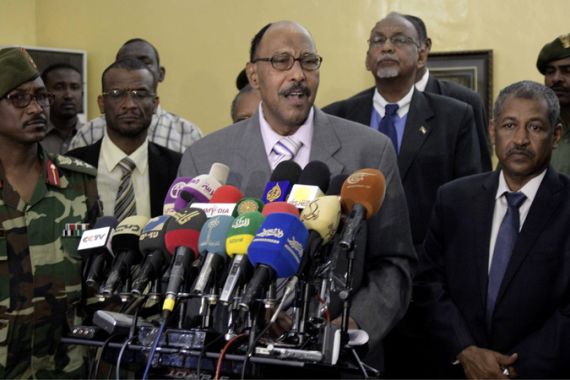Sudan offers talks with Southern rebels
Sudan offers to hold talks with southern rebel group for first time, on condition of discussion within 2005 peace plan.

Sudan’s defence minister has extended an offer to hold direct talks with Southern rebels, paving the way for dialogue between the two groups for the first time.
Abdel Raheem Mohammed Hussein made the offer on Wednesday, saying that Khartoum would be willing to have discussions with the rebel group Southern People’s Liberation Movement – North (SPLM-N), provided the dialogue was based on protocols set out in a 2005 peace agreement with South Sudan.
“We are ready to meet with the northern sector (of the SPLM), on the condition that the dialogue and discussion is based on the Comprehensive peace Agreement and the protocol for the two areas as a reference,” said Hussein.
The rebels, who operate in Sudan’s Blue Nile and South Kordofan states, said that the offer extended was “progress”.
“For Khartoum to directly negotiate with the SPLM-N is progress but the difficulties will come in the details of the talks,” said Neroun Phillip, a member of the SPLM-N negotiations team.
“It’s too early to talk about peace until the parties sit and agree on some issues.”
Curbing rebel support
The Defence Minister also said that first observers are preparing to monitor a demilitarised buffer zone between Sudan and South Sudan, in a move to curb cross-border rebel support.
Sudan has previously refused to meet the SPLM-N and has accused South Sudan of backing them, whose rebellion to overthrow Sudanese President Omar Hassan al-Bashir, began shortly after the secession in 2011.
SPLM’s turbulent interaction with Khartoum resulted in the 2005 peace deal and later, the secession of South Sudan.
The two countries agreed on a timeframe to withdraw troops from their disputed border earlier this month, after being delayed since September.
The war in South Kordofan and Blue Nile has forced more than 200,000 people to become refugees in South Sudan and Ethiopia.